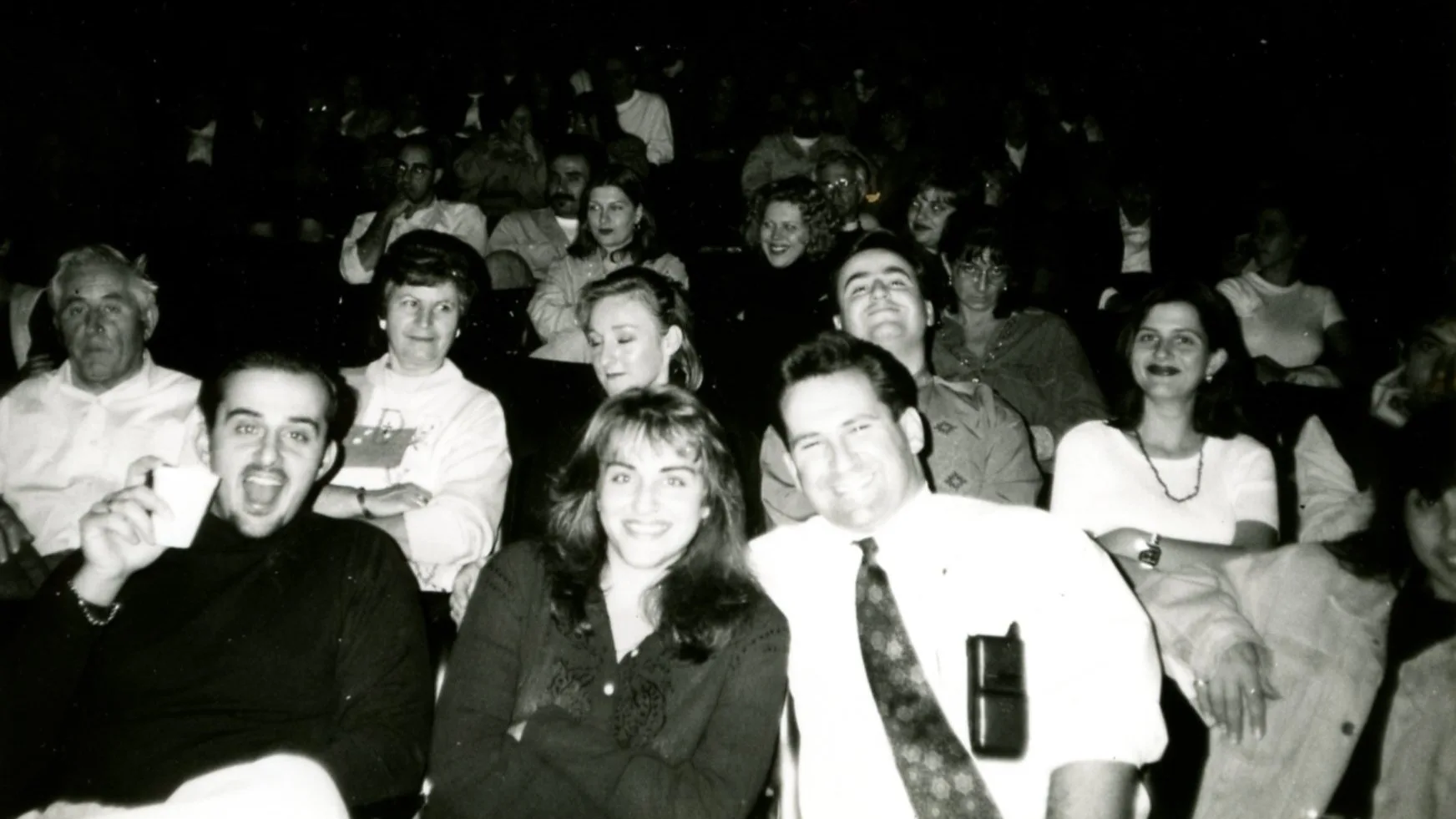By Costa Markos and Andriana Simos
Greek cinema played an important social role in the lives of post-war migrants, especially in the 1950s, 1960s and 1970s. As well as offering entertainment, cinema provided a forum in which Greek migrants could meet.
However, the late 1970s heralded the commencement of the demise of Greek cinema in Melbourne. The last venue to screen Greek films closed its doors in 1984. As a result, Greek cinema ceased to be promoted in a coherent manner, with only a random selection of Greek films being screened at various evenings organised by tertiary Greek societies and other cultural events.
During the early and mid-1980s, through the initiative of the Modern Greek Student Association, films directed by Theo Aggelopoulos, such as The Travelling Players and Days of 36, were screened on campus attracting dedicated followers of the masterful filmmaker.
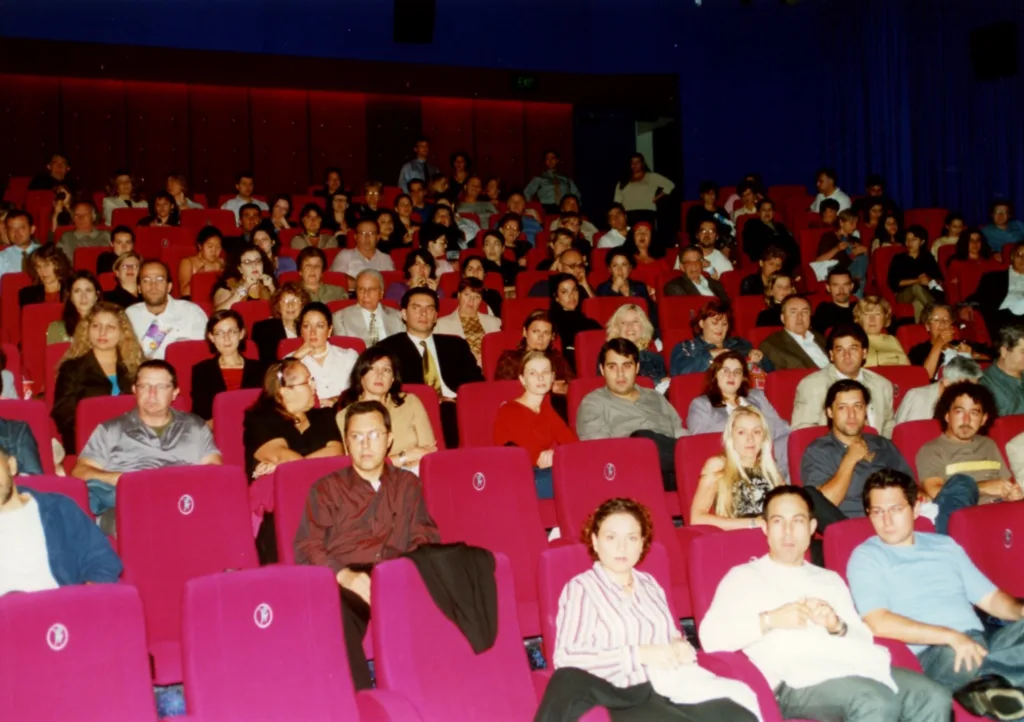
Greek cinema was marginalised, viewed by many as being esoteric and self-indulgent; local film festivals ignored Greek film productions and a plethora of poor-quality B-grade movies flooded the video markets, recycled through the video stores, flooded the Melbourne market.
Paradoxically, at the same time, a group of culturally inquisitive tertiary students were seeking any form of medium that would provide them with access to an emerging cinema movement with challenging qualities; out of their shared passion for visual arts, the idea of a Greek Film Festival emerged.
By the early 1990s, a group of Greek Australian university graduates and post-graduates met informally with the aim of discussing issues pertaining to the local Greek community. One of the outcomes of these discussions was the concept and feasibility of promoting Greek culture via cinema. Acknowledging the ability of film to transcend cultural borders, cinema was considered a social vehicle that could win mass appeal. Simultaneously, Greek cinema would be provided with an appropriate forum for its promotion and debate.
Members of the group decided to become involved with the Antipodes Festival, with a view to extending its realm of activity to include a film festival. In order to coordinate their efforts, they also collaborated with their respective counterparts in Sydney.
In 1993, the Greek Orthodox Communities of Victoria and New South Wales first commenced a collaboration to present the ‘Greek Film Festival’ in a co-ordinated manner.
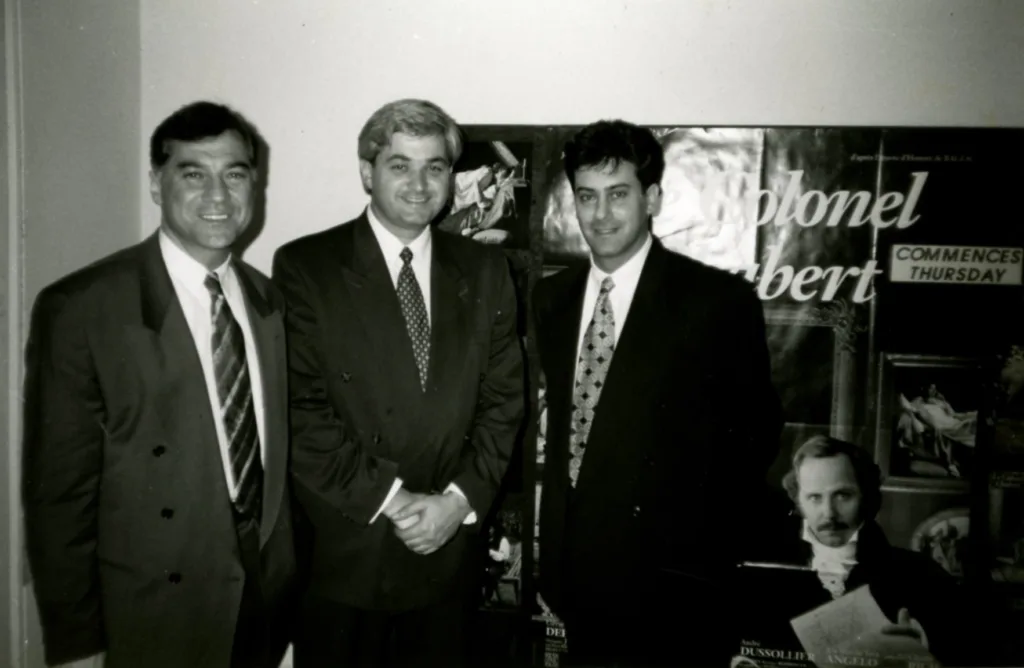
The idea of a national Greek Film Festival was discussed at a number of meetings of the National Network of Hellenic Festivals of Australia and the idea became a reality with the support of the Greek government via the Greek Film Festival.
It should be acknowledged that prior to 1993, Greek films (and Greek Film Festivals) were screened and presented respectively in both Sydney and Melbourne by a variety of organisations. The turning point however, was 1992-1993 when both these Greek communities formulated specific guidelines for a national Greek Film Festival in Australia.
In 1993, the State Film Centre hosted the inaugural Greek Film Festival. It drew an attendance of over 2,000 people, thereby laying the foundations for future growth. After eight continuous years at the State Film Centre, in 2001 the Festival organisers were approached by Palace Cinemas, who suggested moving to a more prominent venue. As a result, the 9th Greek Film Festival secured a new location and subsequently a broader audience. The festival now had the support of an established entity which enthusiastically promoted ethno-specific film festivals.
The partnership with Palace has proven an unqualified success, with annual increases in attendances of 20%. At the same time, Greek film has gained a profile not previously enjoyed.
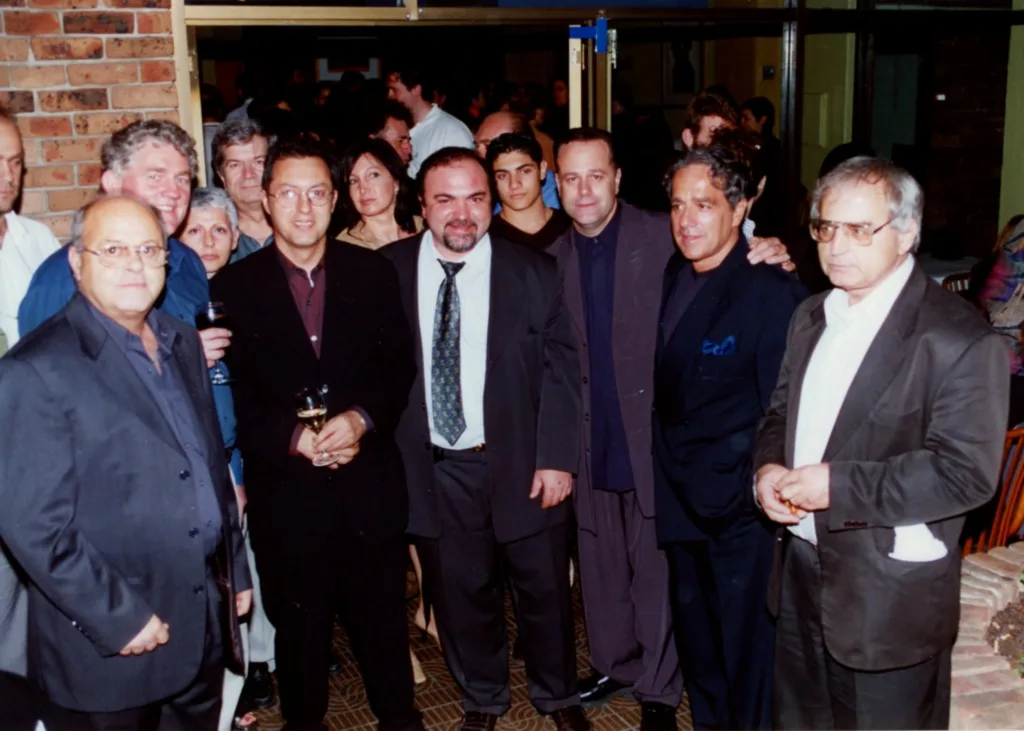
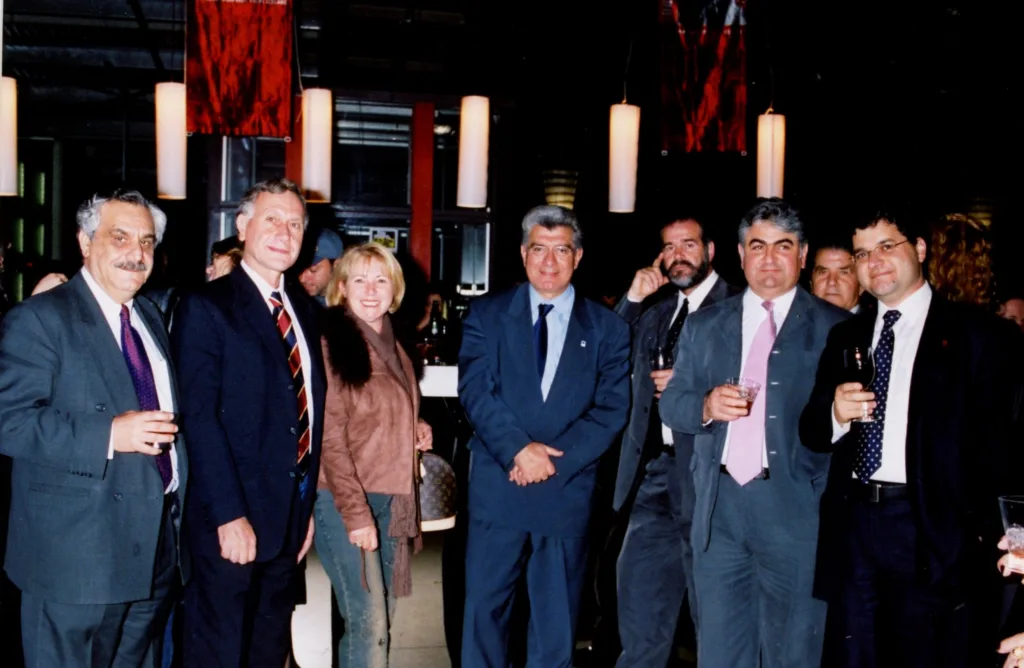
In 2003, the Greek Film Festival became a national event, with four more Australian cities participating in the festival circuit. Last year, close to 8,000 people attended the Greek Film Festival in Melbourne alone, with a total national attendance of over 20,000.
Reflecting on the festival’s evolution, Nia Karteris, who has chaired the Greek Film Festival of Sydney since 2003, told The Greek Herald the decision to allow the event to stand independently was transformative.
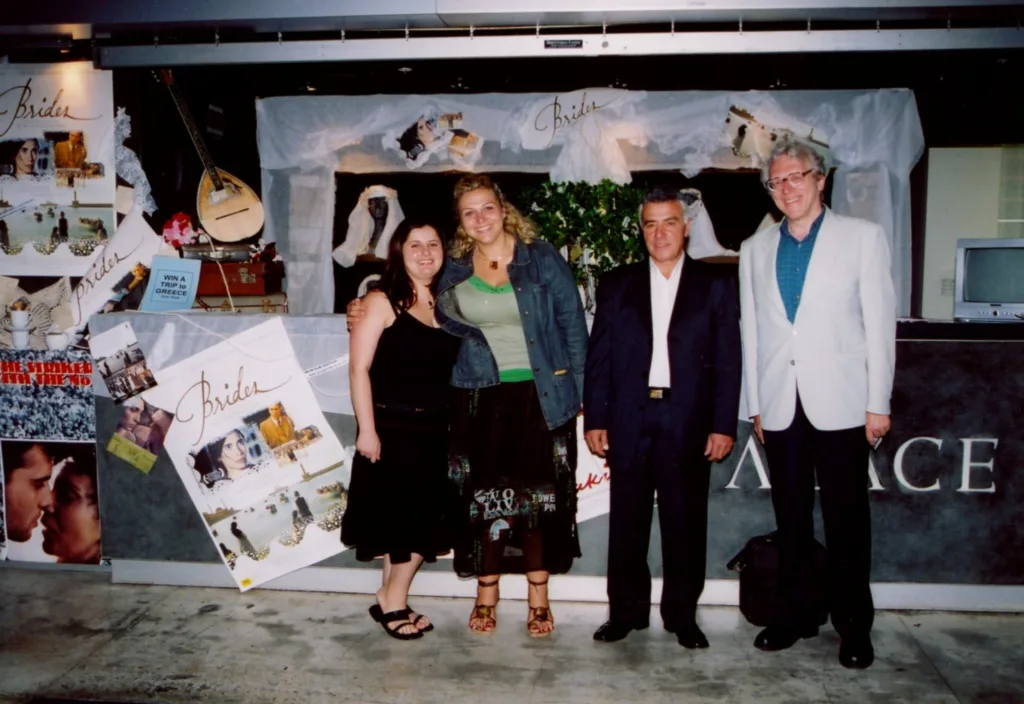
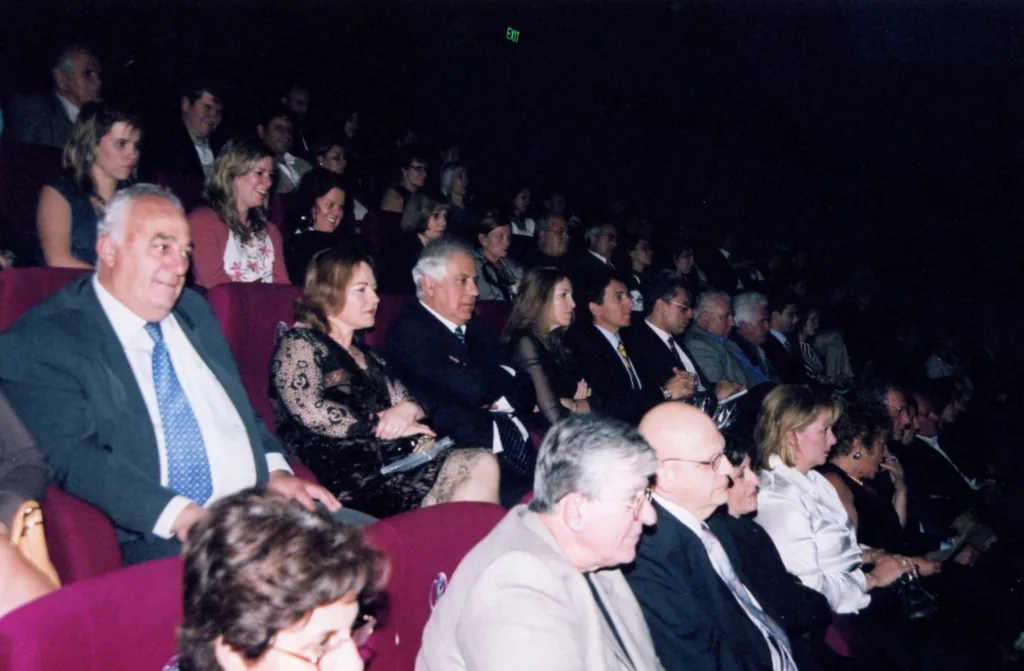
“When it was part of the cultural component of the festival in the beginning of the year, it was just another event of the Greek Festival of Sydney,” she explained.
“Going independently allowed us to embrace and showcase Greek films on a greater scale… We were able to source more films, we were able to showcase more films.
“The Greek film industry was going into a new revamp, new emerging directors, and there was a need for more films. People were travelling more to Greece, people were embracing the Greek culture in a greater scale, and obviously, 25 years down the track, we’re living the success of that decision [to go independently].”
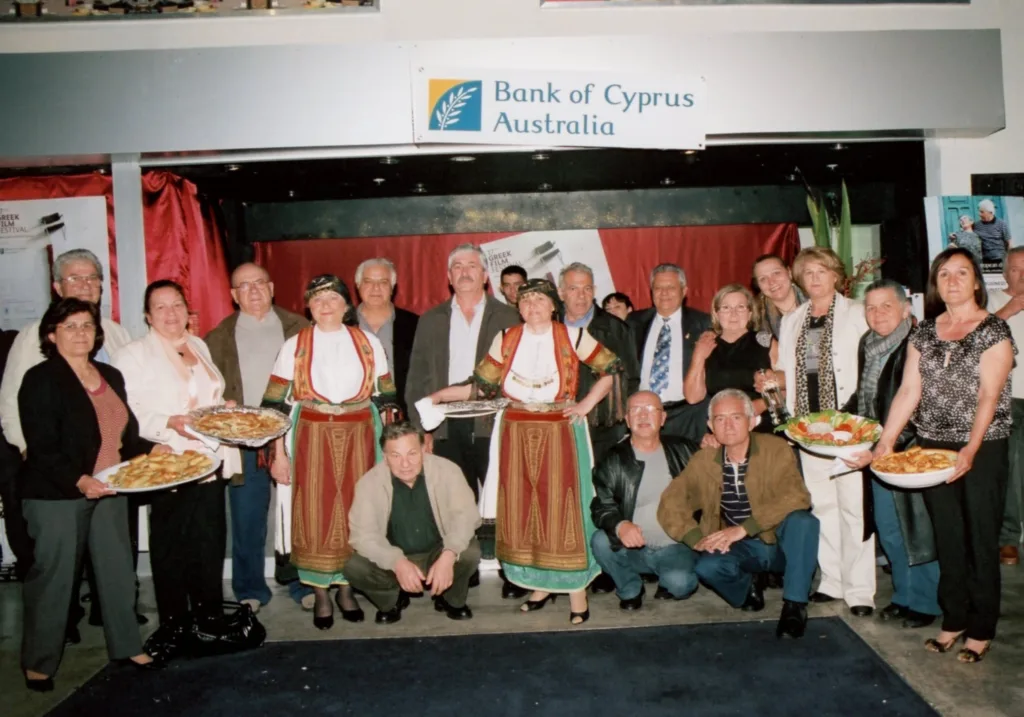
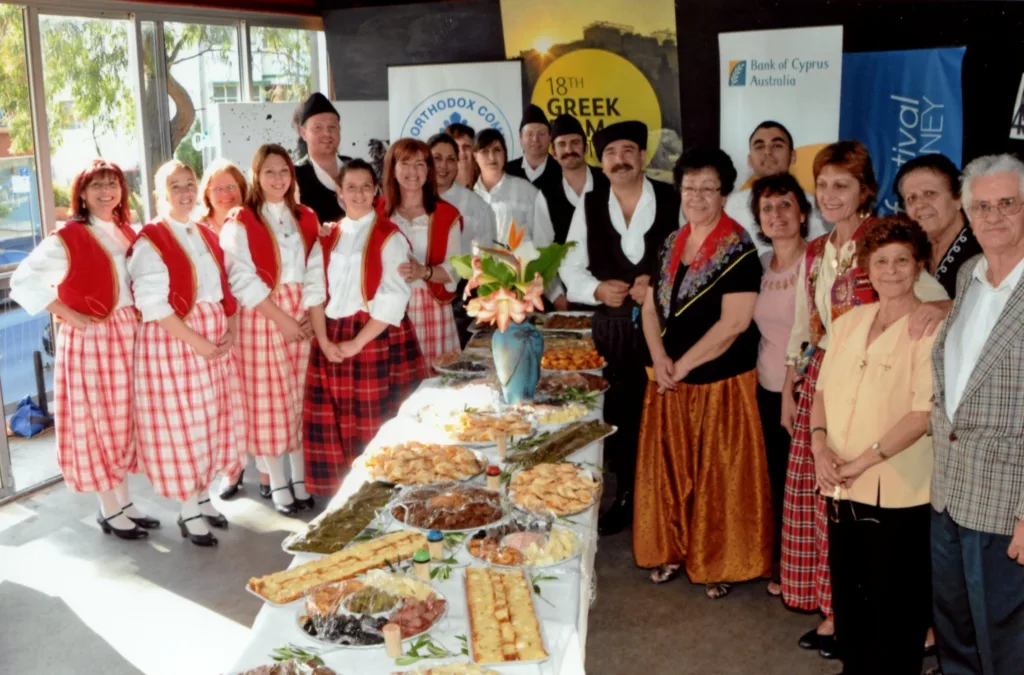
Recent initiatives, such as the Greek Student Festival and 2025’s inaugural Greek Australian Youth Filmmaking Competition on a national level cultivate and nurture a younger generation of film-makers, providing them with an excellent medium of communication and subsequently conveying to the audience themes that impact today’s youth.
As Karteris noted, “It’s all to do with the young people. The Greek Film Festival relies on the younger generation… this is the way the young people can embrace their language and the Greek culture.”
In the past five years, a new genre of Greek cinema has emerged challenging the boundaries of conventional cinema and gaining international attention and acclaim within the International Film Festival circuit.
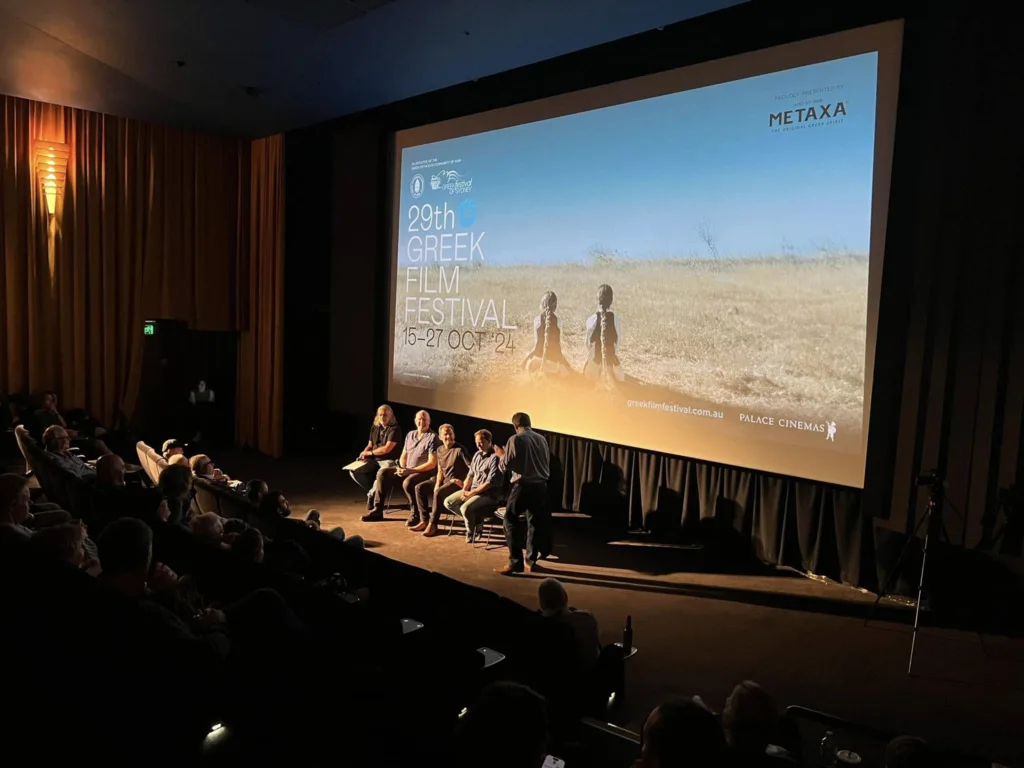
These productions are not solely defined within the realm of the economic crisis that Greece and its population are confronted with, but can be characterised with the fact that the films deal with issues that have a universal reality, human relationships and the deconstruction of institutions, such as the modern family. Elements such as the ever so prevailing bleakness of the surrounding scenery and the physical and mental isolation of the protagonists set the framework for compelling narratives that define this promising genre of Greek film.
Karteris said the festival has mirrored the changing landscape of Greek cinema itself.
“Anyone that’s lived it for the last 25 years could see the change from the screenings we’ve had and where we are today. This year, we’ve got 90 screenings — where we started back then, it would have been a week, so only about 20 screenings. The growth of it and the audience growth, more than anything, shows how much it has evolved,” she said.
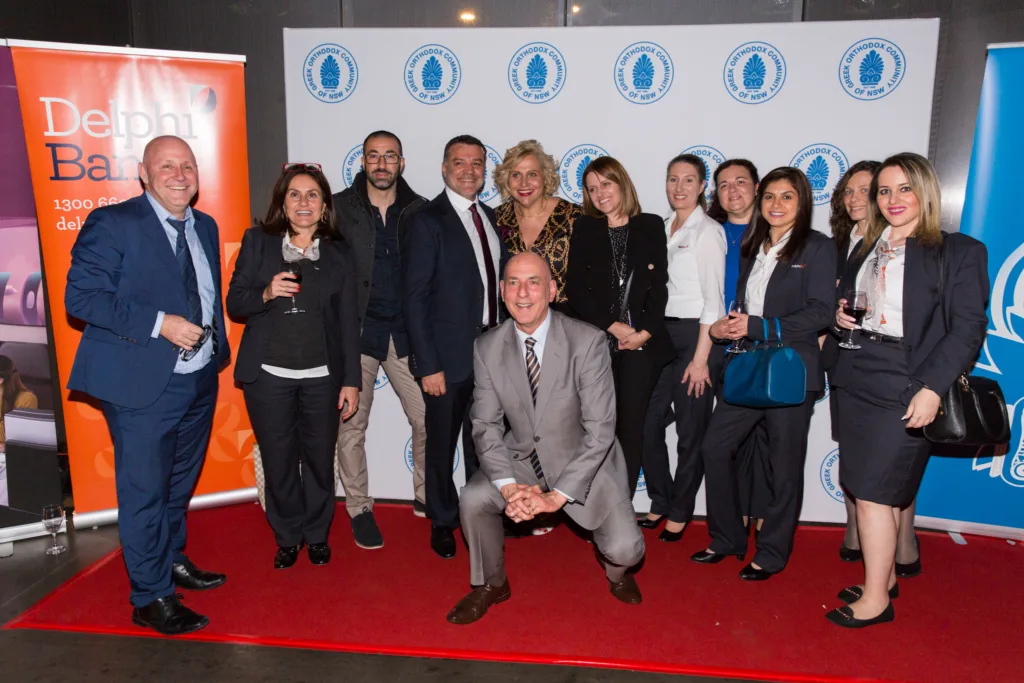
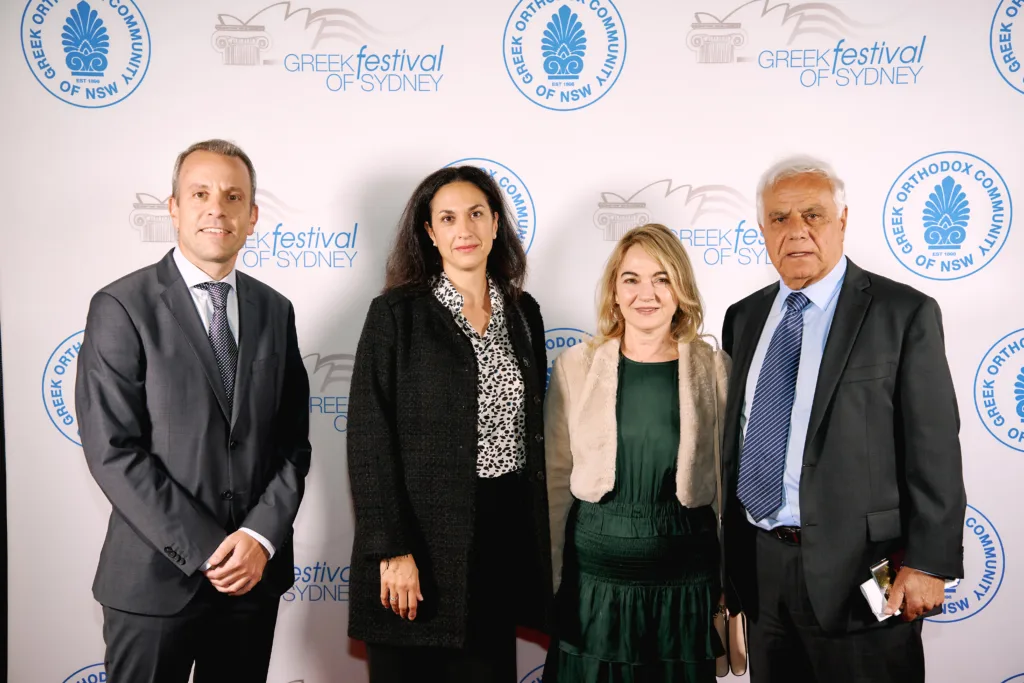
The Greek Film Festival has succeeded and has shown boldness in that it has accepted the challenge of provoking audiences rather than solely focusing on being only commercially savvy and with elements of glamour.
Indicative of this is the Festival’s selection committee commitment in making a concerted effort to present and premiere such films as Knifer, Strella, Dogtooth, Alps and Attenberg hence providing accessibility to an audience who otherwise would not have the opportunity to experience the flourishing creativity of a new genre within Greek cinematography.
The Boards of Management of the Greek Community of Melbourne and the respective Greek Orthodox Community of New South Wales are dedicated to promoting Greek cinema and to continuously challenge the taste of its audience. They are committed to ensuring that the art of Greek filmmaking will receive broader recognition within the Australian Film Festival circuit.
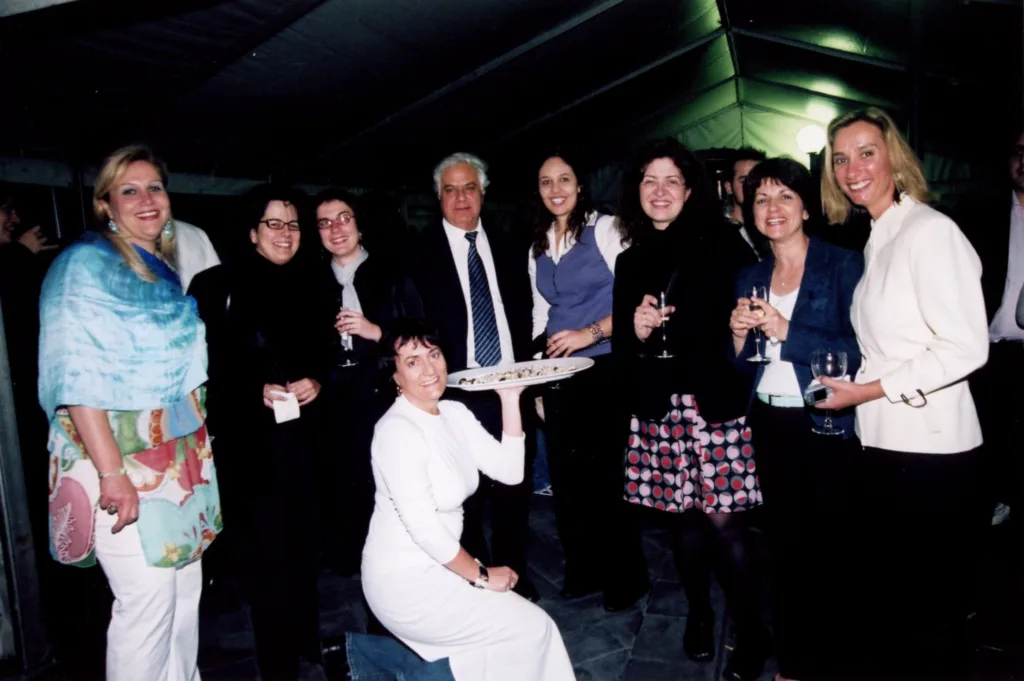
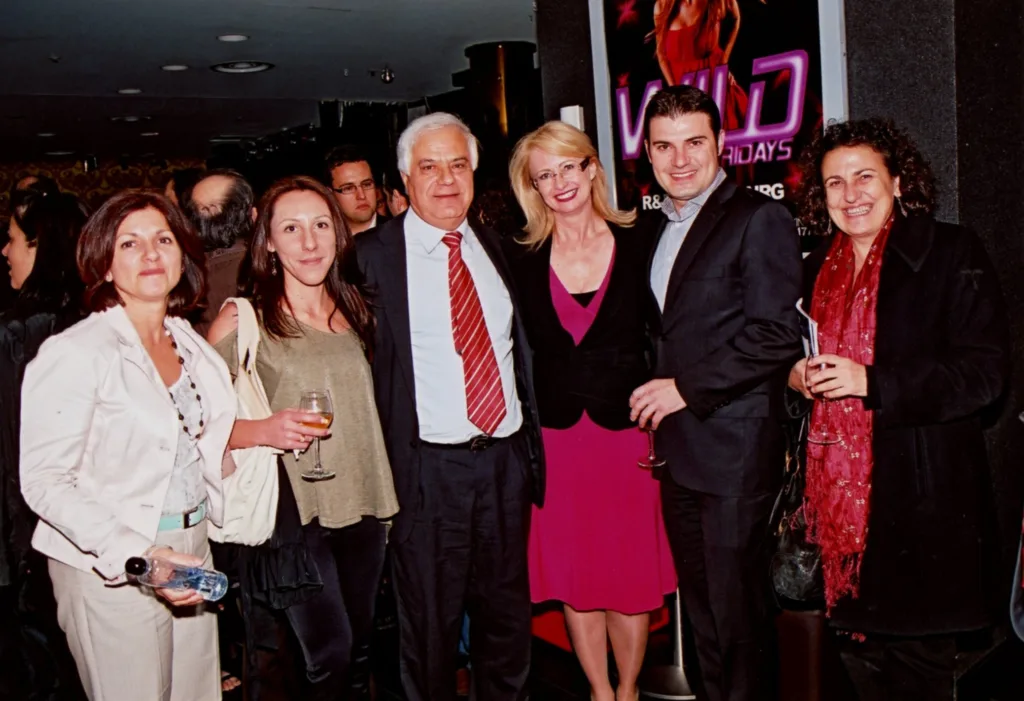
For Karteris, the journey has been one of dedication and pride.
“It’s a credit not only to the organisers and to the people behind the scenes that do the hard work — it’s also a tribute to Palace, that has partnered with us for all these years and continues to do so. But most of all, it’s to the audience,” she said.
The culture of Greek cinema and the Greek Film Festival have defined a sophisticated and engaging audience over the past 20 years that attest the uniqueness of Hellenic culture, and the festival community can be assured “the best has yet to come.”
*Photos supplied by the GOC Cultural and Historical Centre.
